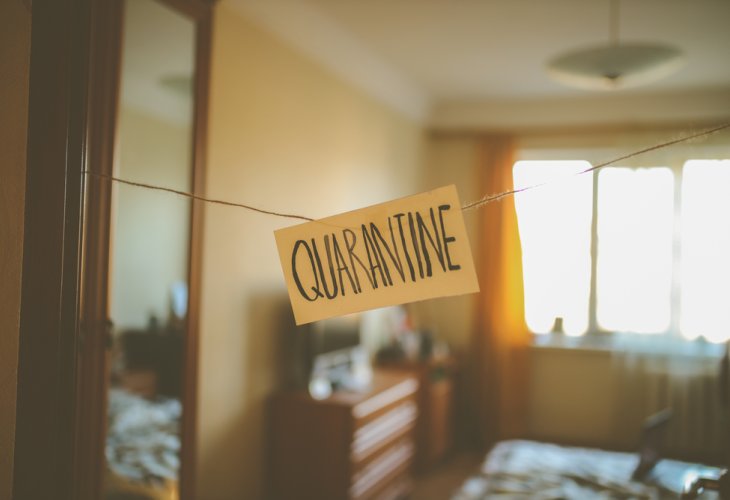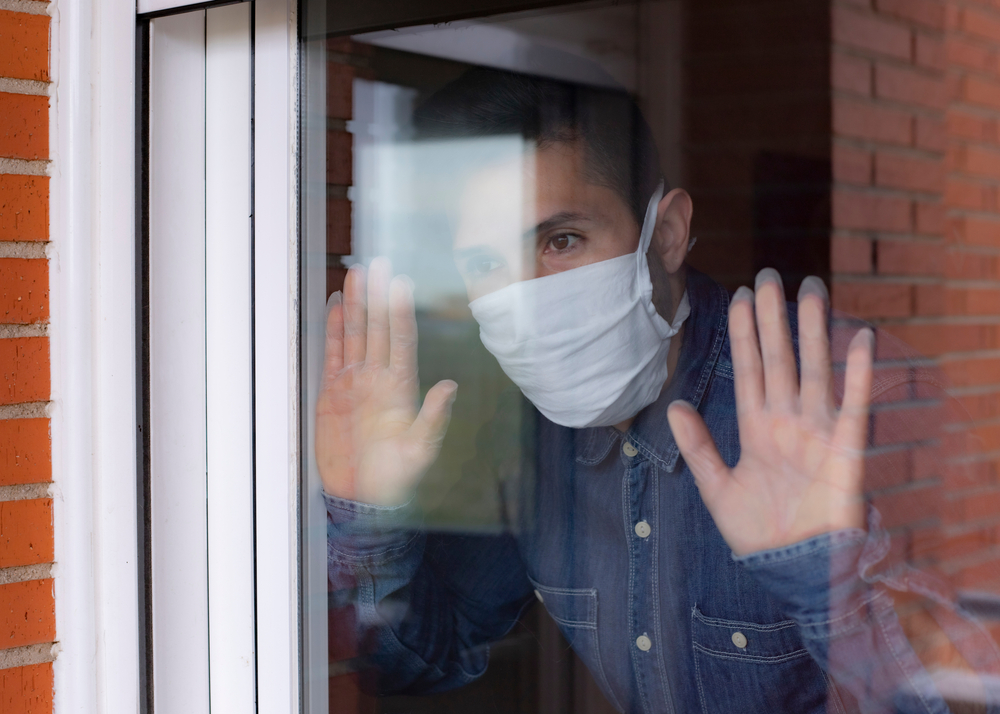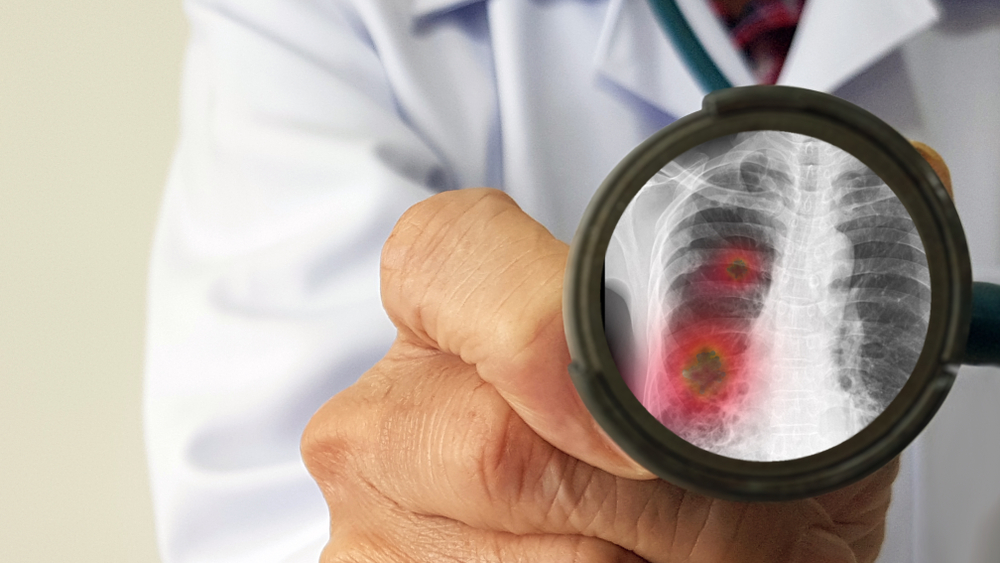Recovered COVID-19 Patients Volunteer in Isolation Wards: Meet the Inspiring, Unique Initiative Worldwide
Not long ago, they battled COVID-19 themselves. Today, they are at the frontline of the fight for the well-being of isolated patients. A unique global initiative by the charity 'Yad Avraham' pairs former COVID patients with antibodies with current patients in need of care and support.
 (Photo: shutterstock)
(Photo: shutterstock)COVID-19 patients hospitalized in hospitals suffer doubly: they are in a separate and isolated ward, see no people, feel no life, receive no encouragement, and sometimes cannot even talk on the phone with worried family members. If you thought this painful situation would persist, you haven't met Rabbi Shimon Broin from the 'Yad Avraham' association. The association achieved a global breakthrough in collaboration with Hadassah Hospital in Jerusalem, allowing former COVID-19 patients with developed antibodies to enter the isolated ward, bringing life and hope.
Rabbi Shimon Broin, a well-known medical figure in Jerusalem, seized the opportunity at the right time. I sat with him for a conversation to learn more about this unique and complex project.
Preemptive Measure
"Everything started immediately after the first wave subsided. The graphs dropped drastically, and the entire country celebrated. But we knew, not by prophecy, that tough times were ahead, and we began preparing. One of the biggest issues during the first wave was people dying. Not many knew they didn't die of COVID-19 but from loneliness, lack of food and drink. People died from neglect, literally. As absurd as it sounds, that's the reality. There are four COVID-19 wards in Hadassah alone. Multiply that by each hospital, and you get large numbers of patients desperate for some attention, a helping hand, a hot meal, and a kind word.
"The demand and need were overwhelming," Rabbi Broin recounts. "We were bombarded with requests to find a solution to this severe problem. People didn't know their loved one's condition, what they needed, how to lift their spirits — not everyone was mobile. During those days, families received short updates about whether their relative was alive or dead but couldn't see, hear, or say goodbye often."
 (Photo: shutterstock)
(Photo: shutterstock)How did you move towards a solution?
"The first wave left no time to think. During the lull, we met with Hadassah's management and Prof. Rothstein to brainstorm solutions. The initial solution, unprecedented globally, was to bring in former COVID-19 patients, some who recovered from severe cases, developed antibodies, donated plasma, and received six different vaccines to maintain their health. These individuals would enter the wards to assist hospitalized COVID patients.
Does it sound simple? In practice, it's not. Bringing in recovered COVID volunteers requires extensive coordination with hospital management, selecting dedicated volunteers willing to commit several hours multiple times a week. "We began recruiting people through various media, and some approached us independently to volunteer. We didn't recruit just anyone; it was people who had COVID, knew what it's like from the inside, faced death, and now volunteer twice or thrice weekly. It usually goes like this: In the morning, three volunteers enter with hot, cold, sweet drinks and pastries. They warmly greet each patient, ask if they need anything, talk a bit about the outside world — they're completely cut off, sharing life's events. We essentially revive them."
"And if needed, we're there to use all our connections to provide for their needs. For example, when a patient requested toothpaste, a phone charger, expensive medications he forgot at home, or anything imaginable."
Rabbi Broin emphasizes: "The medical staff does a fantastic job. They handle every patient request with dedication and efficiency. But they also have a heavy workload. We're there to help them and ease their burden. There's much we can do, like bringing a water bottle, assisting an elderly patient with eating patiently. The most important is talking to them. Mental well-being affects physical health. In places without visitors, we step in."
How many volunteers are there today?
"As of writing, there are 20 volunteers, men and women, from every sector in Israel: religious, ultra-Orthodox, secular. We're currently training about 10 more. Training lasts a week, including instruction, vaccinations, serological tests, plasma donation, and wearing strict protective gear. Next week, we'll have 30 volunteers, significantly boosting our efforts."
What feedback do you receive from the field?
"I can't put it into words. The enthusiastic letters and patient responses speak for themselves. The hospital staff says patients' spirits have improved tremendously. I can confidently say we've saved countless lives. Our volunteers do it wholeheartedly, offering warmth and love, injecting life so sorely lacking in that place."
Rabbi Broin presents a letter from a recovered COVID patient who received daily visits from amazing volunteers: "I was hospitalized alone in a COVID ward, feeling low physically, frustrated by no human contact, watching people around me die like flies. A volunteer from 'Yad Avraham' appeared like an angel from the sky, bringing light to the darkness. They made me feel much better, encouraged me, and I'm sure that lifted my health indicators, warmed my heart, and made me feel human instead of just seeing people in white all day."
Rabbi Broin shares another story: "Recently, worried family members of a 96-year-old hospitalized grandparent called. While at home, family visits were frequent, but at the hospital, who would care personally? 'He speaks Yiddish, survived the Holocaust. Someone from the community who knows him must be by his side,' the family pleaded. I took it as a project, recruited Yiddish-speaking volunteers, and they're doing an excellent job. You can't imagine the overwhelmed calls I received from the family. They saved his life, literally."
When I was Offered to Volunteer, I Immediately Said 'Yes'
"I also had COVID, as did my wife and daughter," volunteer Moshe Tauber shares his motivations. "I was in relatively good condition, and weeks after recovering, 'Yad Avraham' contacted me to donate plasma. Naturally, I volunteered happily and donated twice. When they began the volunteer initiative, they asked me to join. After consulting my wife, who immediately agreed, I was impressed by the innovative and groundbreaking project and felt it suited me best. I gave an affirmative answer and went to the hospital, where the management welcomed me, instructed me on protection, provided various vaccines to strengthen immunity, and I began volunteering."
 (Photo: shutterstock)
(Photo: shutterstock)"The satisfaction is immense," Moshe tries to explain the huge fulfilment. "I visit the ward two to three times a week, start with distributing pastries and drinks, continue helping those needing assistance with eating, move on to conversations with patients, invigorating them with life, and injecting encouragement and joy."
"We're there to assist on both fronts. Physically, we provide food, drinks, treats, and for some, we must feed them. The mental aspect is equally important: the social distance, isolation, and surrounding feebleness sap motivation and joy of living. Here we dispel their loneliness, talking about the outside world. People cry when seeing friendly people aiming to help, the first time in a long while."
Aren't you afraid of getting infected?
"First, I already had COVID, and my blood shows strong antibodies. At home, we maintain high hygiene, sanitize hands, and strictly adhere to guidelines. I see no difference between myself and the medical staff, who also have children at home. I enter as protected as possible, with faith that doing good won't bring harm."
Tauber adds his thoughts on the medical staff: "The medical team does an incredible sacred job. I wear protective suits for a few hours, leaving soaked and exhausted. Consider the nurses doing full 8-10 hour shifts, how do they look after such a grueling day?! We're volunteering to give them breathing space, providing a few moments of kindness."
A moving moment you've experienced?
"An elderly couple, both over eighty, contracted COVID and were in severe condition, sedated and ventilated. Miraculously, they improved and moved to a regular ward. There, the wife discovered her husband wasn't by her side. After inquiries, it turned out that he, receiving dialysis, was in a different ward, separated from her. When I visited her as part of volunteering, she expressed her wish to see her husband, whom she hadn't seen for a long time. I spoke to the staff and facilitated their meeting. It was deeply moving when they reunited after such a long time. I felt I closed a circle, fulfilling my duty faithfully."
Diza, food department manager at 'Ezer Mizion' for over 30 years, shares her feelings, "I personally know an elderly Jewish man who got COVID, and his daughter intentionally contracted it to be by his side and care for him. When she explained the situation to me, I knew something had to be done."
"The daughter visited her father in the COVID ward during a critical moment," Diza says. "The staff, overwhelmed, didn't notice the bedsores from his immobility. If the daughter hadn't seen the wounds, who knows if he'd be with us today? Such stories circulate constantly. Now is the time and place to call on recovered COVID patients with antibodies: volunteer and save lives." Diza concludes.

